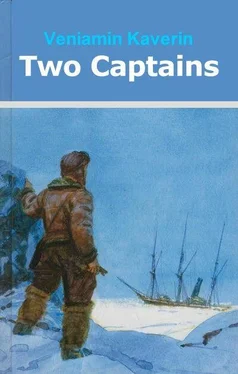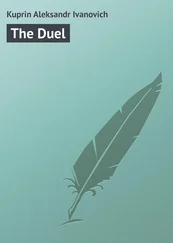I had other friends at the base besides my navigator, but this was not the friendship my heart was yearning for. No wonder such a heap of unmailed letters had accumulated in those days-I was hoping that Katya and I would read them together after the war.
Chapter Two
THE DOCTOR SERVES IN THE ARCTIC
I dreamt all night that I had been wounded again, that Doctor Ivan Ivanovich was bending over me and I was trying to say to him:
"Abraham, saddle, drink", but I couldn't, I was struck dumb. This was a recurrent dream, but the first one in which this long-forgotten sensation of dumbness was so vividly real.
And so, waking up before reveille, I found myself thinking of the doctor and recollected Romashov telling me that the doctor had come to visit his son at the front. I don't quite know how to explain it, but I felt vaguely disturbed by this memory, which had been on my mind for a long time. I went over it word for word and realised what it meant: Romashov had been telling me that the doctor was serving at Polarnoye.
The amazing thing is that the doctor, too, had been thinking about me on that very day and at that very hour. He assured me of it quite seriously. He had read the order concerning my decoration the day before and at first had not thought it was me. "There are plenty of Grigorievs in the world," he had said to himself. But the next morning, while still in bed, he decided that it must be me, like me, he made for the telephone immediately.
"Ivan Ivanovich!" I cried, when a hoarse voice, which it was hard to associate with the doctor, reached me as though fighting its way through the howling autumn wind which raged that morning over Kola Bay. "This is Sanya Grigoriev speaking. Do you recognise me? Sanya!"
I remained in ignorance as to whether the doctor had recognised me or not, because the hoarse voice changed to a rather melodious whistling. I roared myself red in the face, and telephone operator, appreciative of my efforts, informed me that "Medical officer, Second Class, Pavlov was reporting".
"What's he reporting? Tell him this is Sanya speaking!"
"Very good," said the telephone girl. "He asks whether you'll be at N. Base this evening and where can he find you?"
"I'll be here!" I yelled. "Let him come to the Officers' Club. Is that clear?"
The operator did not say anything, then something clicked in the earpiece and a voice, which did not sound like hers, growled:
"He'll come."
I was overjoyed, of course, to hear that the doctor was at Polarnoye and that I would be seeing him that night. Nevertheless, it remained a puzzle to me, why, on arriving at the club, I drank first a glass of white wine, then red wine, then white again, and so on. I kept within bounds, though, all the more so as the Air Arm Commander was dining in the next room with some war correspondent. But the girls of my acquaintance, who sat down at my table from time to time between foxtrots, laughed heartily when I tried to explain to them that if I had learnt to dance my life would have shaped quite differently. As it was, my life was a flop because I had never learnt to dance.
It was in this excellent, though slightly wistful mood that I sat in the Officers' Club, when a tall, elderly naval man with silver stripes appeared in the doorway and started to pick his way between the tables. Doctor Ivan Ivanovich, I took it.
I may have been thinking how bent and old he looked and how grey his beard had grown, but that was only a mirage, of course. Actually, this was the mysterious old doctor of my childhood coming towards me with his glasses pushed up on his forehead, for all the world as though he were about to examine my tongue or peek into my ear.
"Sanya!"
We embraced, looked at each other, then embraced again.
"Have you been here long, Sanya?" the doctor was saying. "How is it we have not met all this time?"
"Three months. It's my fault, of course. May I pour you out a drink?" I reached for the bottle without waiting for his reply.
"You've had enough, Sanya," the doctor said gently, setting aside first his glass, then mine. "Tell me all about yourself. D'you remember Volodya? He's been killed," he added quickly, as though to show me that I could now tell him everything. His eyes glistened with tears behind his glasses.
We sat with downcast heads in the brightly lit, noisy Officers' Club. The band was playing foxtrots and waltzes, and the brass rang out too loudly in the small wooden rooms.
"Where's Katya, what's happened to her?"
I told him how we had lost track of each other.
"I'm sure she's alive and well," the doctor said. "And searching for you day and night. She'll find you all right-if I know anything about a woman in love. Now you can pour me a drink. Let's toast her health."
It was time to go. We were the only people left in the restaurant. The evening was over-that was a fact. But, God, how reluctant I was to admit it, when there was still so much left unsaid between us. But what could you do! We went downstairs and got our overcoats. The warm, bright, slightly tipsy world was left behind us, and before us, pitch-black, lay N., over which a rude, bleak north wind ran riot.
Chapter Three
TO THOSE AT SEA
Submariners were the big boys in those parts, not only because they had done so much at the beginning of the war, more perhaps than anyone else in the Northern Fleet, but because the peculiar routine of their lives, their attitudes, and the stresses of their combat activities placed an imprint upon the life of the whole township. Nowhere are men so equal in the face of death as among the crew of a submarine, where all either perish or vanquish. All combat work is hard, but the work of submarine crews, especially in midgets, is such that I wouldn't care to barter a dozen of the most hazardous air missions for a single cruise in a midget submarine. Even as a boy I used to think that among men who went down so deep in the water there was sure to be some sort of secret compact, like the oath which Pyotr and I had once sworn to each other.
Flying in company with another captain I succeeded in sinking a third transport at the end of August 1942. A midget commanded by the famous F. sank a fourth with my assistance. This would not be worth mentioning-I had no bomb-load at the time and merely reported to HQ the coordinates of a German vessel I had sighted-had not F. invited me to the "roast-pig party", which started off a train of events worth relating.
Who does not know the famous naval tradition of celebrating each sinking of an enemy ship with a gala dinner at which the commanding officer treats the victors to roast sucking-pig? The previous day a transport, patrol-vessel and a torpedo boat had been sent to the bottom, and the white-capped cooks, all hot and bothered, carried, not one, but three whole sucking-pigs into the spacious officers' mess where a "U" table was set out at the head of which sat the admiral commanding the Northern Fleet.
The pigs, appetising, delicately pink, with pale, sorrowful-looking snouts, lay on dishes and the three commanders stood over them with big knives in their hands. That, too, was a tradition-the victors had to do the carving with their own hands. And the portions they carved! A huge chunk, stuffed with buckwheat and trimmed with fanciful shavings of horse-radish sailed down the table towards me. And I had to put it away, on pain of offending my hosts.
The admiral rose, glass in hand. The first toast was to the victors- the commanders and their crews. I looked at him-he had visited my regiment and I remembered the quick, youthful gesture with which he had thrown Ms head back as he received the report of the regimental commander. He was a young man, only four years my senior. I had also known him from my Spanish days.
Читать дальше












